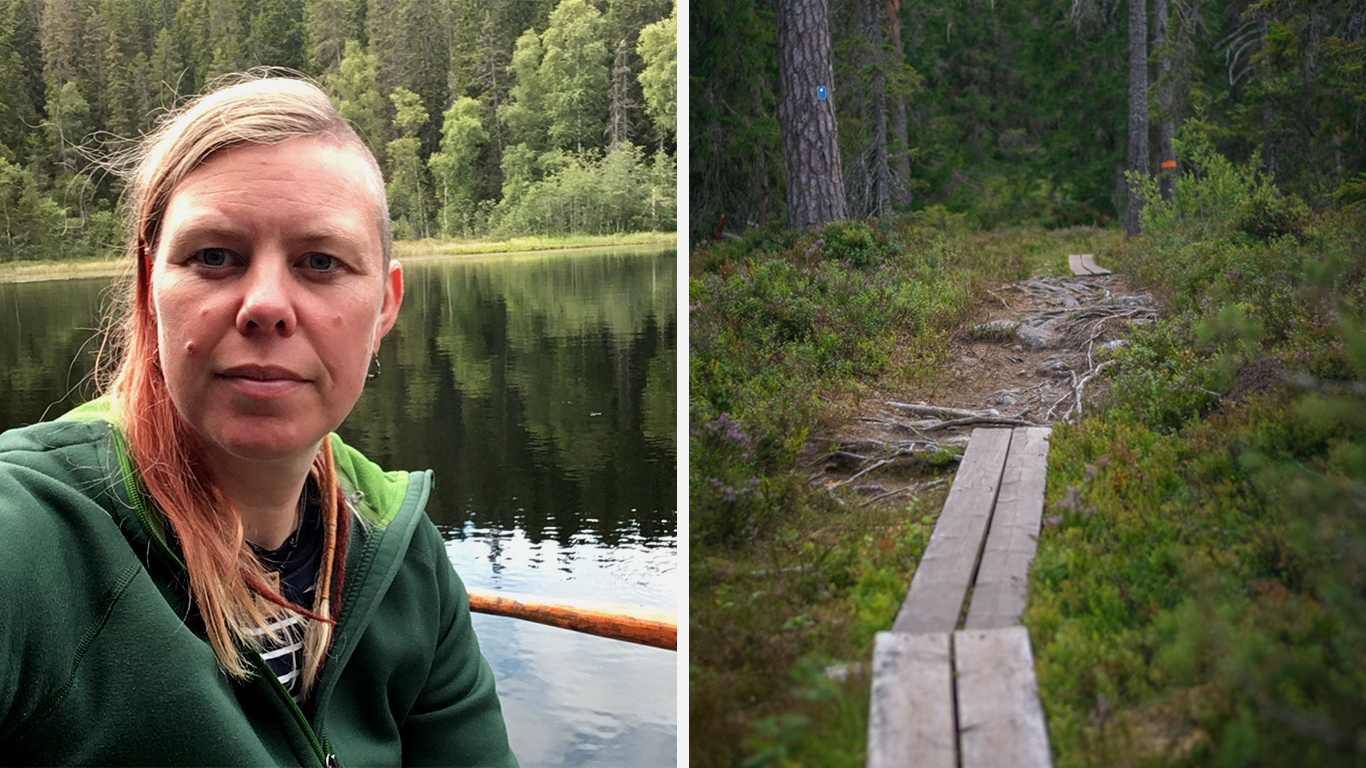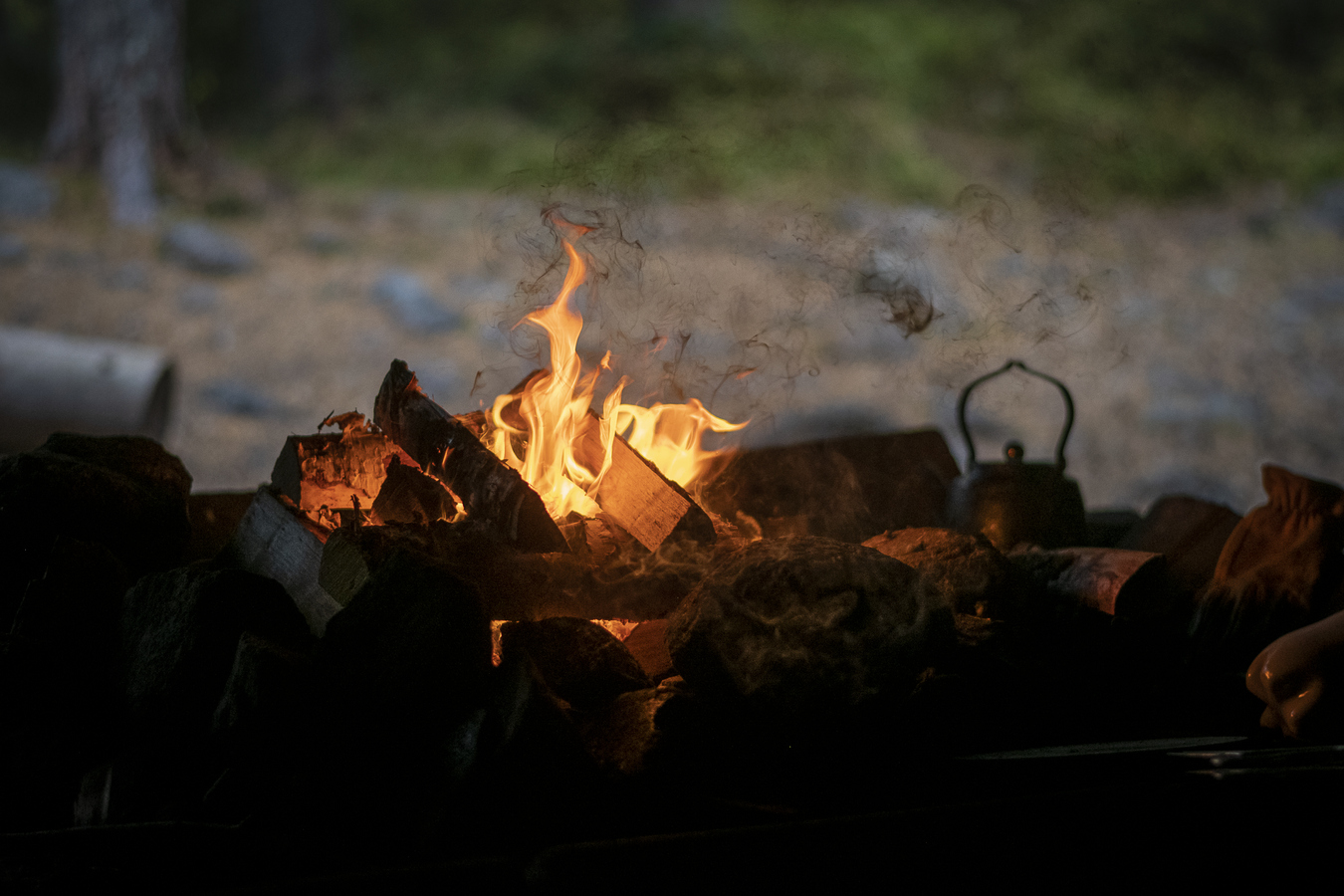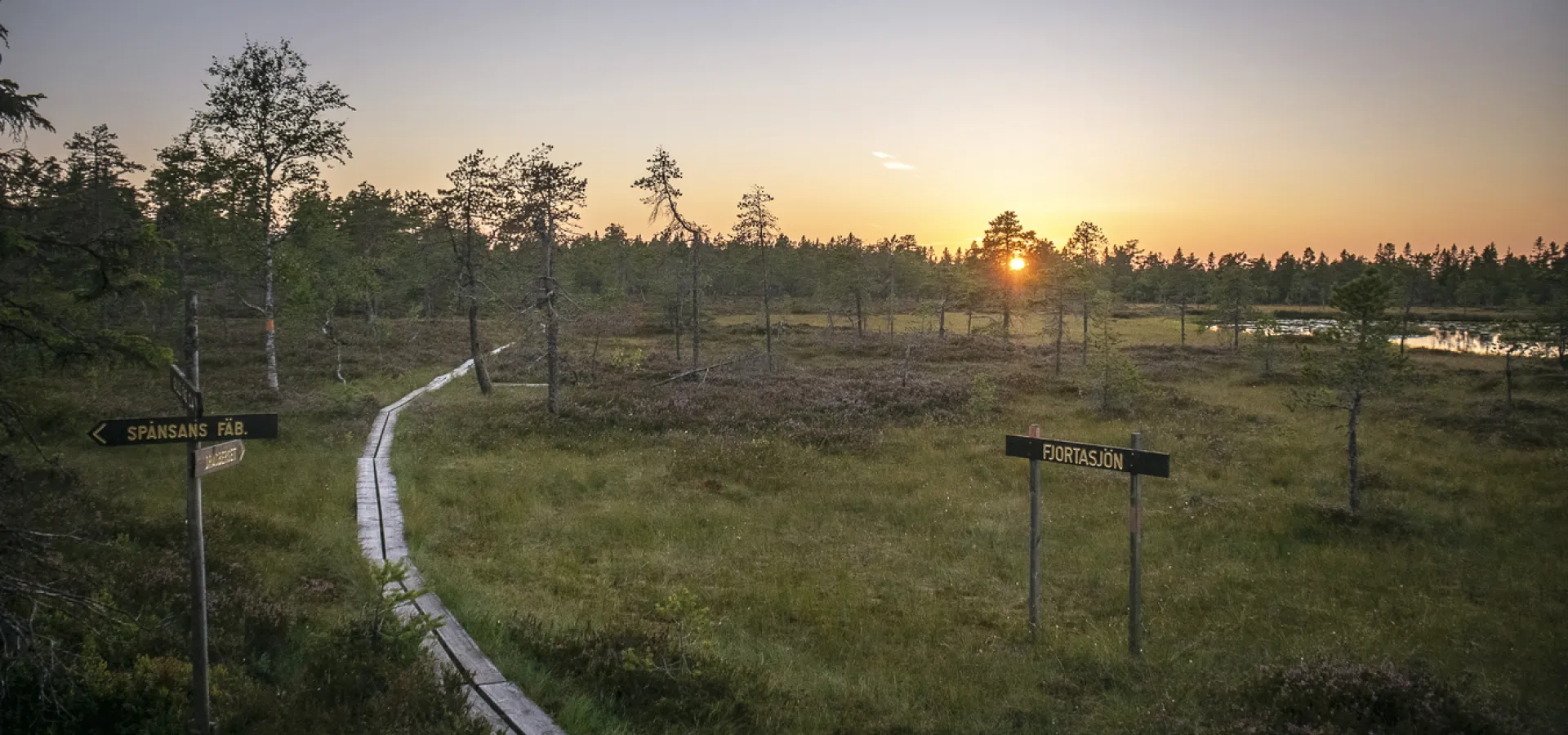People’s interest in outdoor activities has really snowballed and more and more people are heading out, looking for calmness, or adventure, and of course, clean air. Thanks to the right to roam, everyone can move around freely in Sweden’s great outdoors. But there are certain things you need to think about when you’re hiking, cycling, canoeing, camping, or doing anything else in nature. Henny Sahlin from Dalarna County Council tells us more and gives her best tips on how to spend a summer in nature sensibly.
I’m a beginner when it comes to outdoor adventures, how do I get started?
- Look for information on the internet. There are good websites for the local authorities, the County Council, Naturkartan (Nature Map) and Visit Dalarna. There are also networks and groups on social media. Read up about the place you’re going to or the activity you’re going to try out. Check the weather forecast so you know what to expect. Take a friend with you and give it a go. Start with something simple like a hike with a flask of coffee and something small to eat in an area that’s not too far from a town. Go with a guide if you’re unsure or want to try something new.
What kind of equipment will I need?
-To begin with, I would say, keep it as simple as possible. You’ll work out what exactly you need as you go. If you mostly choose to be out in good weather on easy hiking trails then you just need good walking shoes and standard waterproof clothes. But if you want to explore more wild terrain or be out for a long time then you will need better kit. It’s always good to pack some extra food and drinks too. Sometimes you need more energy, and a ‘rawbar’ or something similar is good to have with you to keep your energy levels up.

Plan for rubbish
What should I do to be a well-behaved nature visitor?
- Think ahead about what you’re going to eat, how to take care of your rubbish, and what to do if you need to use a toilet. Take a bag with you that you can take your rubbish home in. I usually also have a bag for plates and cutlery. You can be sure you will need to go to the toilet, so always keep some toilet paper with you. If there are no toilets of any kind, take a trowel with you so you can dig a little hole if you need to do a number 2. Wet wipes for cleaning your hands with afterwards are good but don’t throw them away in nature! Throw them in the rubbish bag and take them home.
Any more good tips?
- Show respect to other visitors. Keep an eye out so that we don’t have any cyclists crashing into people walking. Slow down a bit if you’re the one going quicker. Showing respect also means leaving the place looking good. Pick up rubbish and clean up a bit if other people haven’t bothered. Let’s take care of places we like.
Barbecuing and the most common mistake
What happens if I want to have a barbecue or start a fire?
- The right to roam allows for lighting fires and barbecues, but you should plan carefully and it’s best if you go to a place that has an organised barbecue area. Check whether there is firewood there beforehand, you might find this info on the website, or bring some with you. During spring and summer, there could be fire-lighting bans so it’s extra important to get the latest info on the situation on the day you are visiting. Even if there isn’t a ban, you have to make sure you put the fire out properly.
Which is the most common mistake people make outdoors?
- Not planning what to do with their rubbish or taking the wrong clothes or shoes with them. The best way to avoid this is by learning slowly, start by going on little adventures and learning what to do. Ideally, go with people who are more experienced. They can give you a lot of tips about how to solve different situations. Also, remember the three most important things for an outdoor trip: clothing, packed food, and planning.



